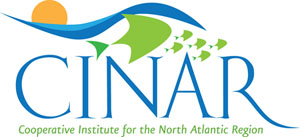It’s fall and the Northeast has turned into its flamboyant, multicolored version following an unprecedented hot summer. Climate change? Perhaps.
Whether recent weather is a result of climate change or not, the phenomenon threatens many changes in our oceans and along our shores for the future.
In the larger arena, the U.S. National Park Service is working to prevent destruction of the nation’s coastal parks by the effects of climate change by forming partnerships with other agencies and NGOs that share the same mission.
On a local level, in Nova Scotia, a group of students is illuminating the effects of climate change on their island cove by establishing a park, informational signs and by otherwise ‘greening’ their corner of the world, while in New Hampshire, students at a Rochester school are helping reduce stormwater pollution.
Changes to fish stocks in Stellwagen Bank have been occurring for centuries, including some manmade changes thought to be a product of modern times and technology. Anne Hayden analyzes a recent scientific report that traces the complex history of the region’s fish stocks and shows that overfishing is not a recent phenomenon.
Rachel Feeney looks at a couple of those fish stocks up close. Scientists gave hake a good hard look at a symposium this year, hoping to identify gaps in data that will enable the fish to be managed more productively. Redfish will have its own symposium in November. Meanwhile, it’s a once-overfished species that scientists consider to be rebuilt, and in a twist on the usual story, it’s a fishery for the resource that’s lacking.
People as well as fish stocks will suffer as ocean systems fail, according to a new book called Seasick, reviewed by Lee Bumsted. Leaving no doubt as to its theme, the subtitle of the U.S. version is: Ocean Change and the Extinction of Life on Earth.
Yet hope for the future of the Gulf of Maine comes not only from the local, regional and federal efforts outlined in this issue to address ocean issues, but on a larger scale, through a new U.S. National Ocean Policy that addresses climate change and other major interest areas through regional planning bodies, that like the NPS program, coordinate and maximize rather than duplicate efforts.
We hope the Gulf of Maine Times may continue to bring you the stories of challenges to our environment and the solutions being implemented by everyone from students to federal agencies.
Print


















